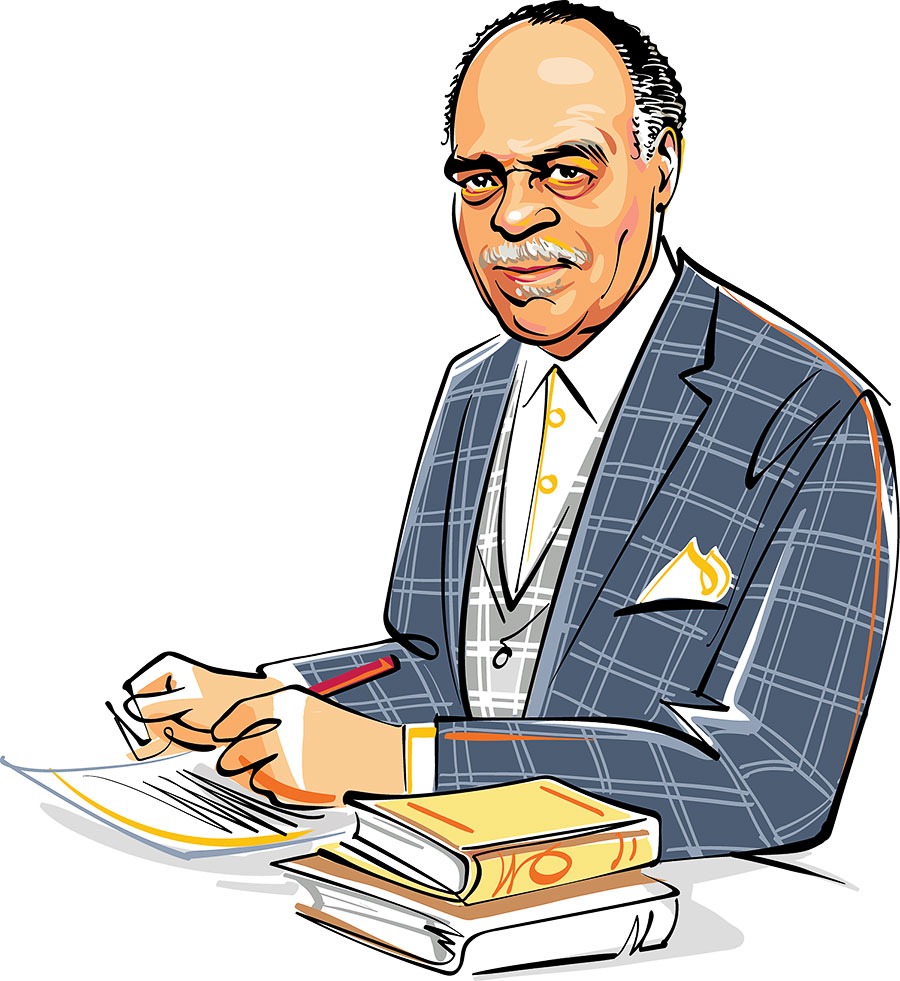■ When I was young, my mother told me to go to the Detroit Public Library and check out Richard Wright’s Black Boy, and I refused to go because I hated myself. But she was very determined. So I went to the stacks, found the book, put it to my chest, walked into our people’s section, sat down, and began to read. I read two-thirds of it at the library that day and finished it at home that night. Then I went back the next day and checked out everything Richard Wright had published at that time. One of the most important books, which very few people have read, was his collection of essays titled White Man, Listen!, which included a major essay on Negro writing. After that, I read Margaret Walker, Langston Hughes, and so forth. And that gave me a kind of ammunition and fortified me against everything, because now I understood: If we can write and publish books, we are somebody.
■ At 13 or 14 years old, I’d take the Greyhound to Ann Arbor to liberate books from bookstores. That’s what poor people do on one level, and you know you’re poor if you’re wearing used underwear. But I wasn’t trying to steal clothes or shoes, I was going after books. Then I’d get back on the bus that evening with two bags of them, easily, and that’s how I started my library. Books and art pretty much saved my life.
■ I learned early on that if I was going to have any traction, I had to work harder than everybody else. So I never drank, never smoked, never partied off the charts.
■ My mother was murdered. She was in the sex trade and had turned a trick one weekend and never came home. I would go out looking for her with a lead pipe in my belt. When I found her, she had been beaten so badly that we couldn’t even open her casket. Beauty does not work for you unless you know how to use the beauty you’ve been endowed with, and she had not been taught how to use or contain it. The first man she had sex with was my father, and he was a dog. When we left Little Rock, Arkansas, he abandoned us. So she was left on her own and had to fall back on what all the men wanted.
■ I joined the military because that was my last option. It was the poor boy’s answer to unemployment. When I arrived at basic training, I was reading Paul Robeson’s autobiography, Here I Stand. The drill sergeant said, “What are you doing reading this Black communist?” Then he said, “All you women, against the bus!” It was a breakdown of our quote-unquote manhood. And he held my Paul Robeson book above his head and commenced to tear the pages out, give a page to each of the recruits, and tell them to use it for toilet paper. Eventually, I became a squad leader, and my whole squad was basically white men — all older than me and all from the South. So it was always a battle. But I learned in the military that if you live in the avenue of hate, you can’t think properly.
■ Gwendolyn Brooks was a major influence on my life. She stopped me from doing something that may have hurt me. After they murdered Fred Hampton, I was so hurt, I was gonna hook up with some brothers and just do some things. I had weapons. I had gone by Gwendolyn’s home to drop off some papers, and she saw this rage in my eyes. She said, “You’re not going anywhere,” and she sat down in a chair in front of her door. All night.
■ My name comes from the Kiswahili language in East Africa. Haki means “justice” and madhubuti means “precise.” One of the reasons I decided to seek a name that was more involved with my culture was because I had become too popular and couldn’t get anything done. When an Ebony article on me hit in March of 1969, my book Don’t Cry, Scream sold internationally. And from that point on, Don L. Lee was a known entity.



